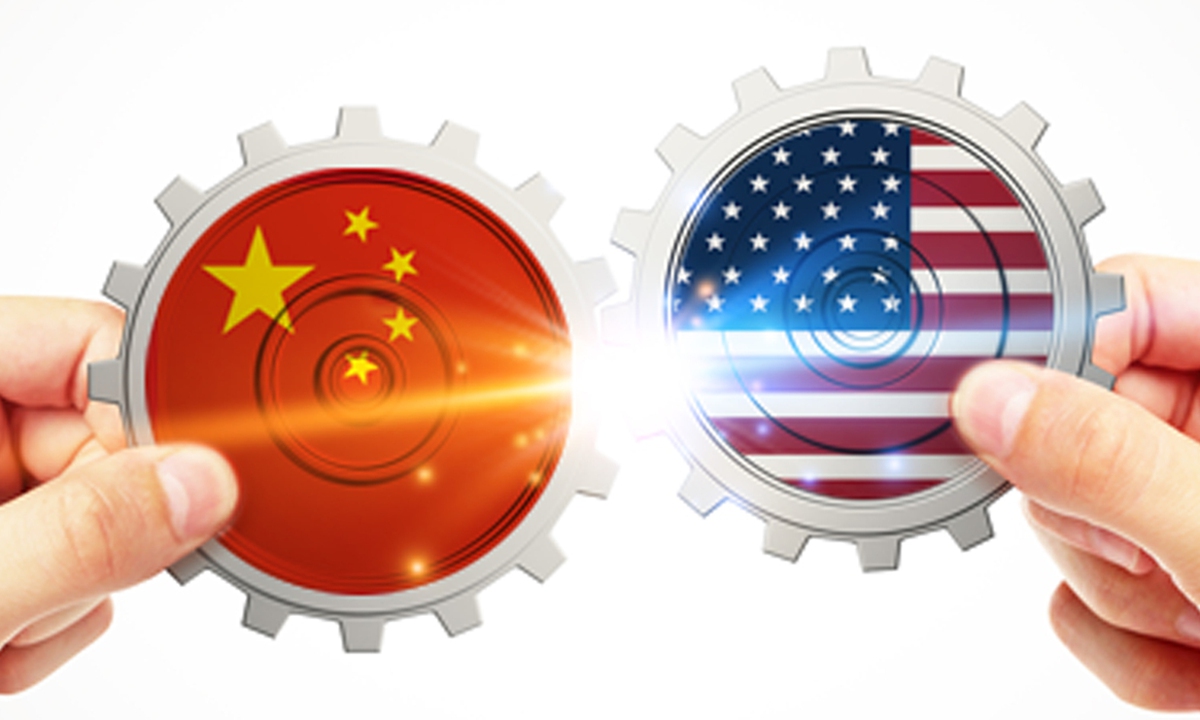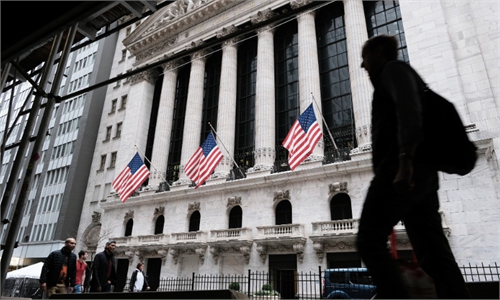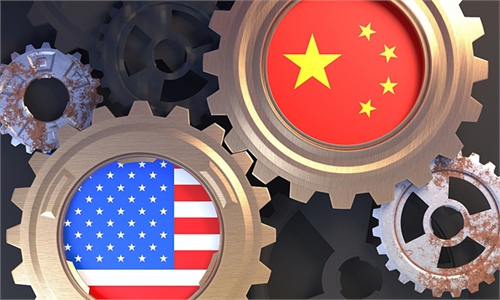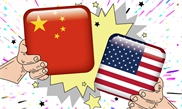
China-US Photo: GT
2023 might witness more high-level interactions between China and the US. US Secretary of State Antony Blinken's planned China visit is catching eyeballs. It will be Blinken's first visit to China since assuming office, and another face-to-face communication between high-level officials from the two sides after the meeting in Bali, Indonesia, 2022.This year, the US will host the APEC Leaders Meeting. Whether Chinese President Xi Jinping will attend the event has grabbed great attention from the world.
However, it will be increasingly difficult to achieve major breakthroughs in China-US diplomatic contacts. Washington seems unable to get rid of its obsession over fierce competition with China. Many observers even worry that a direct military conflict between the two might break out sooner or later.
Mike Minihan, US Air Force's Air Mobility Command chief, sent a memo on Friday last week to the officers he commands that predicts the US will be at war with China in 2025. The prediction was echoed by Michael McCaul, the new chairman of the Foreign Affairs Committee in the US House of Representatives. "I hope he's wrong… I think he's right though," McCaul said on Sunday.
The Biden administration is aware of the significance of avoiding a war with China, but many of its moves are exacerbating tensions between the two powers. In terms of economies and technology, quite a few of Washington's policies are seeking "decoupling." In October last year, the Biden administration imposed sweeping tech restrictions on China, including a measure to cut China off from certain semiconductor chips made anywhere in the world with US tools.
This is a watershed. It means the US not only wants itself to run faster in this race, but also attempts to make China run slower, or even retrogress. Last week, the US has secured a deal with the Netherlands and Japan to restrict exports of some advanced chip-making machinery to China. US suppression toward China in chip industry will only become harsher.
On January 26, Henry M. Paulson, Jr. former Secretary of the US Treasury, published an article on Foreign Affairs, saying that "China and the United States are in a headlong descent from a competitive but sometimes cooperative relationship to one that is confrontational in nearly every respect." He also warned that the political winds are strong and the desire to punish China even at the US' expense is driving many in Congress.
Obviously, with the Republican Party regaining control of the House of Representatives, political infighting will complicate the formulation of US policy toward China. The Republican Party is not only trying to contain China, but also wants to restrain the Biden administration as well. On the other hand, the Democratic Party is worried about being perceived by voters as being weak toward China. Given the 2024 presidential election, politicians from both parties in the US are motivated to be tougher on China.
US House Speaker Kevin McCarthy is reportedly planning a visit to Taiwan island in the spring. The move will deal a huge blow to China-US ties, and will also jeopardize Biden's effort to set guardrails of bilateral ties with China.
One of the tasks of Blinken's trip is to negotiate guiding principles that can help manage tensions between China and the US. This is an important consensus reached during the Bali summit. If the two sides fail to discuss a mutually acceptable vision and rules for China-US relations in the next 10-20 years, we may all go through the scenario of the World War I again, where all parties sleepwalked into the war. If this occurs between China and the US, two nuclear powers, the result will be catastrophic.
There should be more high-level meetings. This is by no means a sign of backing down, but a measure to effectively manage the bilateral ties. The recent talks between Chinese Vice Premier Liu He and US Treasury Secretary Janet Yellen in Zurich, Switzerland, on January 18, were inspiring. According to Xinhua News Agency, the dialogue was professional. Officials from both sides need to realize that too many political manipulations in diplomacy will hurt professional approaches, yet puzzles can be resolved through sincerity, wisdom and patience.
That being said, observers may not place much expectation toward a big improvement of bilateral relations for Blinken's China visit, but it is hoped the visit could stabilize the relationship, and smooth the strategic communications between the high-level officials. In an increasingly volatile world, more effort is needed to manage China-US tensions.
The author is a professor at the Institute of International Studies, Fudan University and a senior fellow at the Charhar Institute. opinion@globaltimes.com.cn



